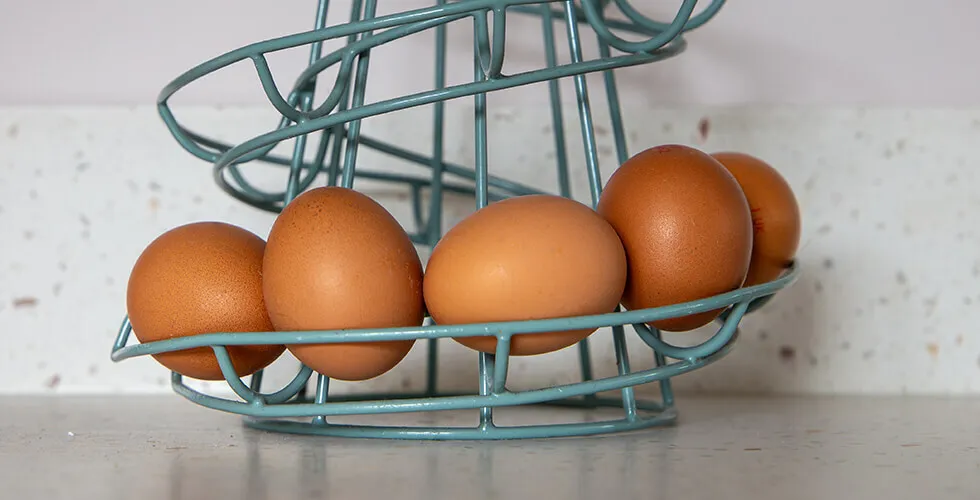
Think leaving your eggs on the kitchen counter is harmless? Think again. While those neatly stacked cartons may look fine sitting out, experts say this habit could turn your breakfast into a breeding ground for bacteria.
Elisa Maloberti, Food Safety Manager at the American Egg Board, says the key to egg safety is simple: keep them cold. “Eggs should always be stored at 40°F or below and in their original carton,” she explains. The reason? Refrigeration slows the growth of harmful bacteria, such as Salmonella, which can easily multiply when eggs are left at room temperature.
So, how long is too long? Two hours. That’s the maximum time eggs can safely sit on the counter before they should be tossed. “Even if the egg looks fine, it could be unsafe to eat,” warns Maloberti.
But don’t panic if your baking recipe calls for room-temperature eggs. You can still use chilled eggs—just pull them from the fridge 30 minutes before baking, or place them in lukewarm water while you prep.
And if you’re tempted to rinse your eggs before cracking them, don’t. “Washing eggs at home can actually increase contamination risk by removing the protective coating,” says Maloberti. Instead, gently wipe with a clean, dry cloth if needed.
Egg Safety Cheat Sheet:
- Keep eggs refrigerated at 40°F or colder.
- Never leave eggs out for more than 2 hours.
- Don’t wash commercial eggs—just wipe if dirty.
- Discard any cracked, leaking, or odd-smelling eggs.
In a world where grocery costs are rising and food safety matters more than ever, treating your eggs with care is a small step that goes a long way. When it comes to your kitchen counter, eggs simply don’t belong there.

